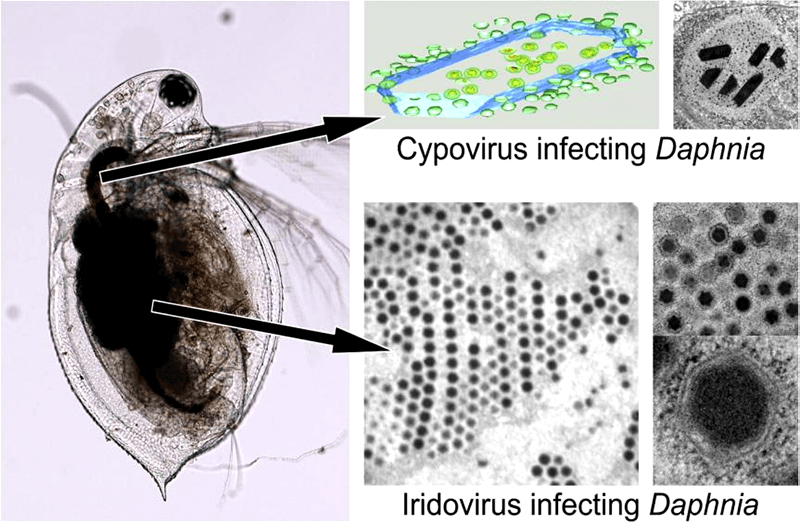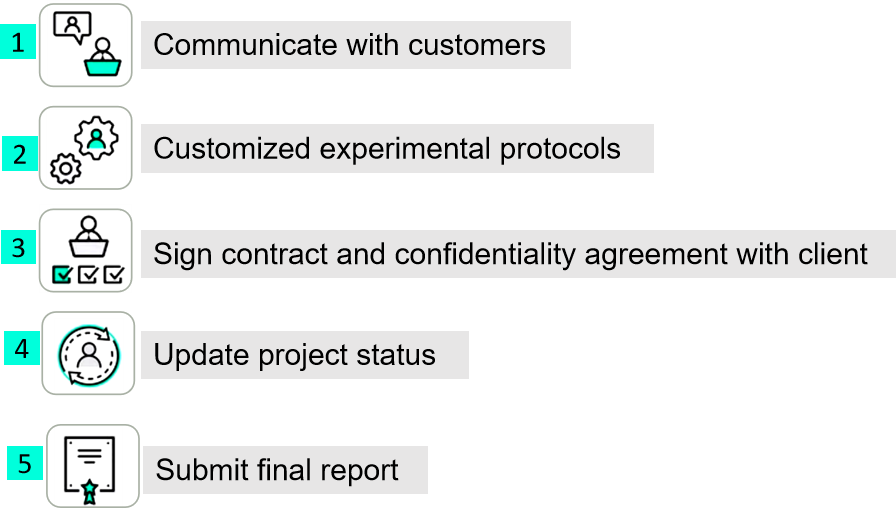Cytoplasmic Polyhedrosis Virus (CPV) is a natural pathogen of many insect species. The usual site of CPV infection of target insects is the midgut tissue. This is where the larvae lose appetite, move slowly, have a shrunken carapace, and discharge polyhedral mucus from the anus.
Lifeasible is committed to providing comprehensive and effective solutions for biopesticide development. We continue insect virus research. We have developed a virus insecticide, which has been effective in agriculture and forestry pest control and achieved better control results.
 Figure 1. Ultrastructure of Cytoplasmic Polyhedrosis Virus (Vávra J, et al., 2016).
Figure 1. Ultrastructure of Cytoplasmic Polyhedrosis Virus (Vávra J, et al., 2016).
Plasmopolyhedrosis virus is easy to proliferate, has high virus yield, strong virulence, and broad insecticidal spectrum, and the resulting insecticide is highly effective and harmless to humans and animals, does not harm natural enemies. CPV has a wide range of hosts and can cause disease in a variety of insects, so it has a wide application prospect as a biocide. Our developed CPV insecticide is currently effective against pests in forests, vegetables, cotton, tea, and fruit trees. Red pine caterpillars, pine banding moths, and pink stripe night moths, for example, have been effectively controlled.
The following describe the actions of CPV insecticide. High specificity. A virus is harmless to insects that are not its target and can only parasitize one insect or population nearby. Under normal circumstances and away from direct sunlight, it is comparatively stable and may be stored for years without going inactive. It is safe for humans, animals, birds, beneficial insects, fish, etc., and has not evolved a pest resistance.

Lifeasible aims to provide a comprehensive solution for developing efficient and sustainable biology. If you are interested in us, please feel free to contact us.
References
Lifeasible has established a one-stop service platform for plants. In addition to obtaining customized solutions for plant genetic engineering, customers can also conduct follow-up analysis and research on plants through our analysis platform. The analytical services we provide include but are not limited to the following:
July 13, 2024